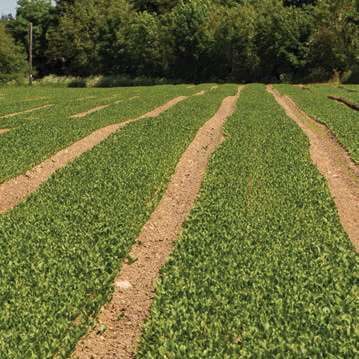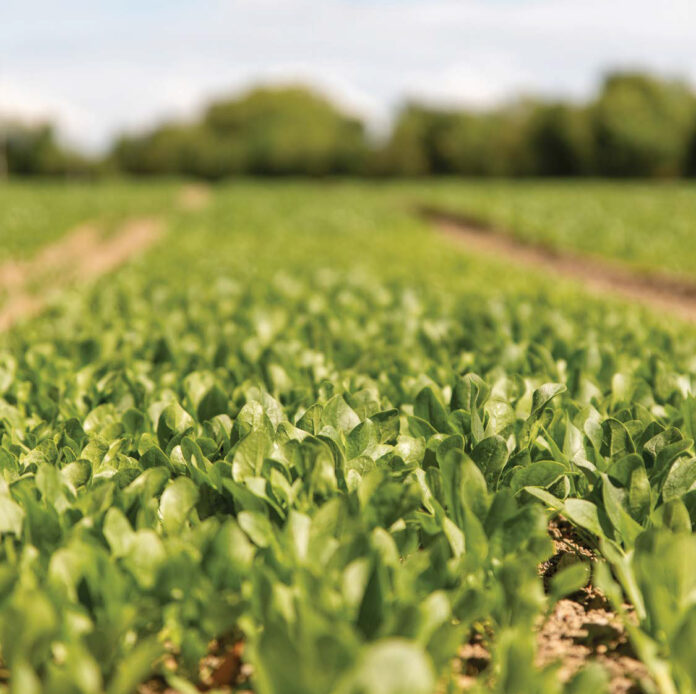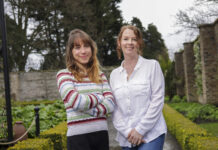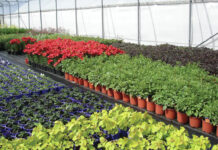The Situation We See
How many of the food products on display at the supermarket, including fresh fruit and
vegetables, are placed in sealed and packaged punnets or bags to ensure safety and
freshness? This packaging is either plastic, or a mix of plastic and cardboard containers, often with modified internal atmosphere to improve the shelf life (longevity) of the product. Packaging ensures our food is safe to consume by minimising the risk of food borne pathogens and reducing food waste among perishable, fresh products like spinach by
extending their shelf life.
However, the horticulture sector faces a trade-off between minimising food waste (through increased shelf life) and minimising packaging waste. There is widespread concern about the volume of food waste and packaging waste generated in our daily lives. In Ireland we generate an average of 54kgs of plastic waste per person every year
(Sunday Business Post 19/01/2021, Eurostat data (2021). Food waste by Irish consumers is estimated at one million tonnes every year (EPA 2020 www.StopFoodWaste.ie).
The Leaf No Waste Project
So, how can we reduce both the reliance on plastic packaging and the risk of food waste? This question underpins the Leaf No Waste research initiative. We are taking part in a research competition supported through the Science Foundation Ireland Food Challenge, and we are undertaking research to answer this question over the course of 2021. The Leaf No Waste team is an interdisciplinary team with backgrounds in horticulture, food science, packaging technology, and sustainability. The team includes Dr. Lael Walsh and Dr. Shivani Pathania at Teagasc, working with Professor Jesus Frias and Lorraine Foley at TU Dublin (Principal Investigators on the project), and societal impact champion, presenter of
RTE’s GROW COOK EAT, Karen O’Donohoe.
Through engagement with growers and advisors we became aware that the horticulture sector is facing increasing pressure to reduce plastic packaging and switch to compostable packaging options, while maintaining shelf life of their products. Growers have found this a challenging shift to make because it is difficult to understand which materials are appropriate for different crops. For example, crops with a higher water content like herbs, lettuce and spinach have a short shelf life and compostable packaging performs significantly worse than current plastic options.

What is Leaf No Waste Trying to do About This?
The primary goal of Leaf No Waste is to reduce food waste and minimize single plastic use in horticulture products. Specifically, we focus on fresh spinach and herbs because they are most prone to food waste with no secondary market. The aim is to fortify the crops with silicic acid which may reduce respiration in the crop after harvest and extend the shelf life under more sustainable or compostable packaging options. This addresses the trade-off between extending shelf life of perishable spinach leaves and using compostable packaging.
This is novel because traditionally, shelf life interventions have focused on the post-harvest management of the product, overlooking the importance of interventions taken in the field, and during production. Our interdisciplinary approach addresses all stages of the product’s life cycle from production through to consumption. The team will assess how a targeted agronomic intervention can improve crop shelf life under reduced plastic options, can lower
waste levels and how this improves the sustainability profile of the crop.
Preliminary Findings
The team at the Technical University Dublin designed a pilot study by growing a mixture of mustard (var. Ruby Streaks) and baby leaf spinach (var. Amazon) crops enriched with proprietary products containing silicic acid. Treatments were applied at different rates and the crop was harvested in March 2021. Harvested material was packaged in Teagasc
using oriented polypropylene (OPP), polylactic acid (PLA) and cellulose plastics. All packages were transported to the Greenway Hub in TU Dublin where extensive shelf life testing was conducted. Although this pilot study was small, it did show a treatment response in both baby leaf spinach and mustard leaves from silicic acid application, as crop quality and freshness was maintained in certain packaging types. This has prompted further investigation at a field scale to replicate the treatments and at a packaging scale to test out different film characteristics.
Further Research
The next phase will entail the field scale commercial validation of the intervention over the summer at McCormack’s Family Farm. In addition to repeating the work in the pilot study, further testing of packaging film types, atmosphere packaging and packaging thickness
will be undertaken, in tandem with a life cycle assessment to generate information on the impact indicators. For example, we aim to measure the impact of interventions on greenhouse gas emissions.
Conclusion
The Leaf No Waste project brings together expertise in agronomy, post-harvest technology, packaging and sustainability to address all stages of a crop product life cycle from production, through to consumption. At the same time, it will assess the sustainability criteria of different options to ensure environmental metrics are available and can be
considered by producers and retailers when taking decisions on production and packaging, as they endeavour to reduce waste. We anticipate increased flexibility in addressing the
horticultural sector’s trade-offs between food waste and packaging waste, which can only improve the sustainability profile of important crops in Ireland’s food system.
For more information about the project, contact researchers in the Horticulture Development Department at Teagasc: Lael Walsh (Lael.walsh@teagasc.ie) or in the
Horticulture Department at TU Dublin: Lorraine Foley (Lorraine.Foley@tudublin.ie). ✽
| DR LAEL WALSH is a research officer in the Horticultural Development Unit at Teagasc. Lael continues to develop a research programme in support of sustainable horticulture with a particular focus on waste and food loss reduction, life cycle impact assessment, urban agriculture, horticulture resilience, and all aspects of sustainability. Contact Lael Walsh: lael.walsh@teagasc.ie |










